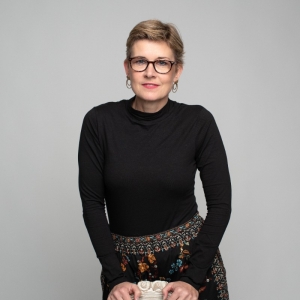Why I Didn’t Get the Job: Reflections on leading, growing, and moving forward
Kimberly Cullen
Senior Management Professional | Writer | Author
I was a finalist for a head of school position at a small Montessori school in the midwest. I didn’t know anything about Montessori, and my previous leadership experience had primarily been at the secondary level, so going into the process, I felt a little out of my league. That didn’t seem to matter though – the search team saw enough in my application and in my panel interview that they flew me across the Atlantic to interview me in person. I was one of four candidates in total – statistically, each of our chances were fairly low. I realized that I knew very little about the school so I decided the trip would be useful for me to learn more about them and their needs. As much as I knew about the school from their website, my research on Montessori, and the position description, I had no idea whether this would be a good fit for me, and so in a way, I was interviewing them as much as I was being interviewed.
Many weeks passed between the initial panel interview and the finalist visits. Almost 10 weeks, to be exact. In that time, I had received a significant number of rejections from a range of schools for similar positions. I wondered if maybe the universe was encouraging me to find another way to explore my interest in leadership, and I started looking into doctoral programs in leadership, adult learning, and organizational behavior. I had spent the last year on sabbatical thinking about my own leadership path – a seemingly impossible climb through the ranks of an international school from intern to Upper School Director over the course of 18 years, and I knew that as hard as I worked for the opportunities that came my way, I never learned about leadership. I knew when I was inspired and when I wasn’t, when I was growing and when I wasn’t, and I understood that being challenged and being criticized were two different things. But I also spent almost a decade trying to hide what I felt might be flaws.
No one had taught me what it meant to lead, and as successful as I had been figuring it out on my own, there were so many things I didn’t know.. and even more that I didn’t know that I didn’t know. My sabbatical year had given me the opportunity to learn about coaching, to become a coach myself, and to teach coaching to other leaders. I realized how unprepared so many of us are for leadership and I grew committed to supporting others in the development of their own leadership skills. I co-authored a book for women leaders in international schools, and I facilitated a workshop series around coaching for growth. As I considered all of these experiences, the possibility of pursuing a doctorate grew increasingly exciting to me, and I started working on applications to several different programs.
In the days leading up to the final interviews, I almost convinced myself that I didn’t want the job. I was fully committed to pursuing a doctorate at this point. I submitted a few doctoral applications before my interviews as a kind of “emotional safety net” so that when I didn’t get the job, I would have something exciting to look forward to. As a result, the nervous energy that crept up on me as I flew across the ocean to the very cool city that this school community called home took me off guard. I spent the next day and a half preparing intensively for my visit to the school and the interviews that would come. I felt strong, confident, and I was inspired by the school’s mission and potential.
For a brief moment, I wanted nothing more than to be their new Head of School. I had fun with my interviews, and reveled in that I’m kinda rockin’ it feeling. Eventually, as it usually does, the time came for me to talk about why I was the right person for the job – “Things are going fine at the school right now,” one Board member said, “so if you are selected, how will you demonstrate to the school community the added value of hiring you?” To be fair, the question came my way at around 7 p.m. after a full day of interviews and a raging case of jet lag that had me awake since 2 a.m. I don’t remember my answer. I just remember being exhausted.
In the end, I didn’t get the job. As much as I had planned for that outcome (remember, doctral applications were already submitted), I was still disappointed. Rejection is never easy. In retrospect, I understand now why I wasn’t selected. Excuses aside, I failed to stand out. And while I can’t remember my answer to the most important question of all (why should we hire you?), I know I didn’t say this:
I have no experience with Montessori, and very little with k-8 education. I am learning about both and am committed to continuing. But what I am passionate about is guiding people. I know that my own leadership path is unique for a school environment, and I have had the benefit of a year-long sabbatical during which I have focused almost solely on how to become a better leader. I believe that schools have as much potential as those who work in them, and that in order to be great, we need to build on the strengths of our educators and staff. No one is born a leader – leadership is something we learn, and I am committed to not only growing the best leadership team possible, but also harnessing the leadership potential of those they serve. And having said that, I myself am still developing as a leader.
I have a lot of experience and great potential, and at the same time, I bear a healthy dose of humility and am not afraid to be vulnerable in front of others. I am eager to learn and to serve – in the interest of both of those things, I will be a leader who is committed to growing publicly. I will get a leadership coach, and I will work closely with those I lead to make sure we are all growing each day. It’s amazing that the school is doing well. And yet as a Search Team, you are committed to doing even better – that is why you embarked on such a thorough search process. My favorite quote is from Kung Fu Panda, when Master Shifu says to Po “If you only do what you can do, you will never be more than you are.” No organization should content itself with being good enough, and no leader should either. Together, our growth would be seen and felt by the entire community.
There is no way of knowing whether speaking this truth would have gotten me the job, and in hindsight, I realize that it doesn’t matter. What matters is that the experience has helped me clearly define how I feel about leadership, and what I believe is possible. I recently started reading An Everyone Culture: Becoming a Deliberately Developmental Organization, by Robert Kegan and Lisa Laskow Lahey (Harvard Business Review Press, 2016), and it reminds me that I have a lot to learn about what makes leaders, and the organizations they serve, most effective.
Regardless of where you work, the need for change has become the baseline. Education, technology, business, finance – all of it depends on people, awareness, connection, and the understanding that we cannot stand still. We have to keep growing. Ultimately, my goal is to help other see this, because in the end, it is the pursuit of growth (personal, professional, organizational, societal) that will bring about the greatest changes of all.
- Never stop growing.
- Leadership is earned, yet it must be learned.
- Reflect, Learn, Move.
- Speak your truth.
What do you think about the points raised in this article? We’d love to hear your feedback.

ABOUT THE AUTHOR
Kimberly Cullen
Kim is a senior management professional skilled in building capacity, leadership development and learning. She is and experienced writer & author and passionate about bringing out the best in people.





Your work will fill an enormous piece of your life, and the best way to be genuinely fulfilled is to do what you accept is incredible work. Also, the best way to accomplish extraordinary work is to cherish what you do.